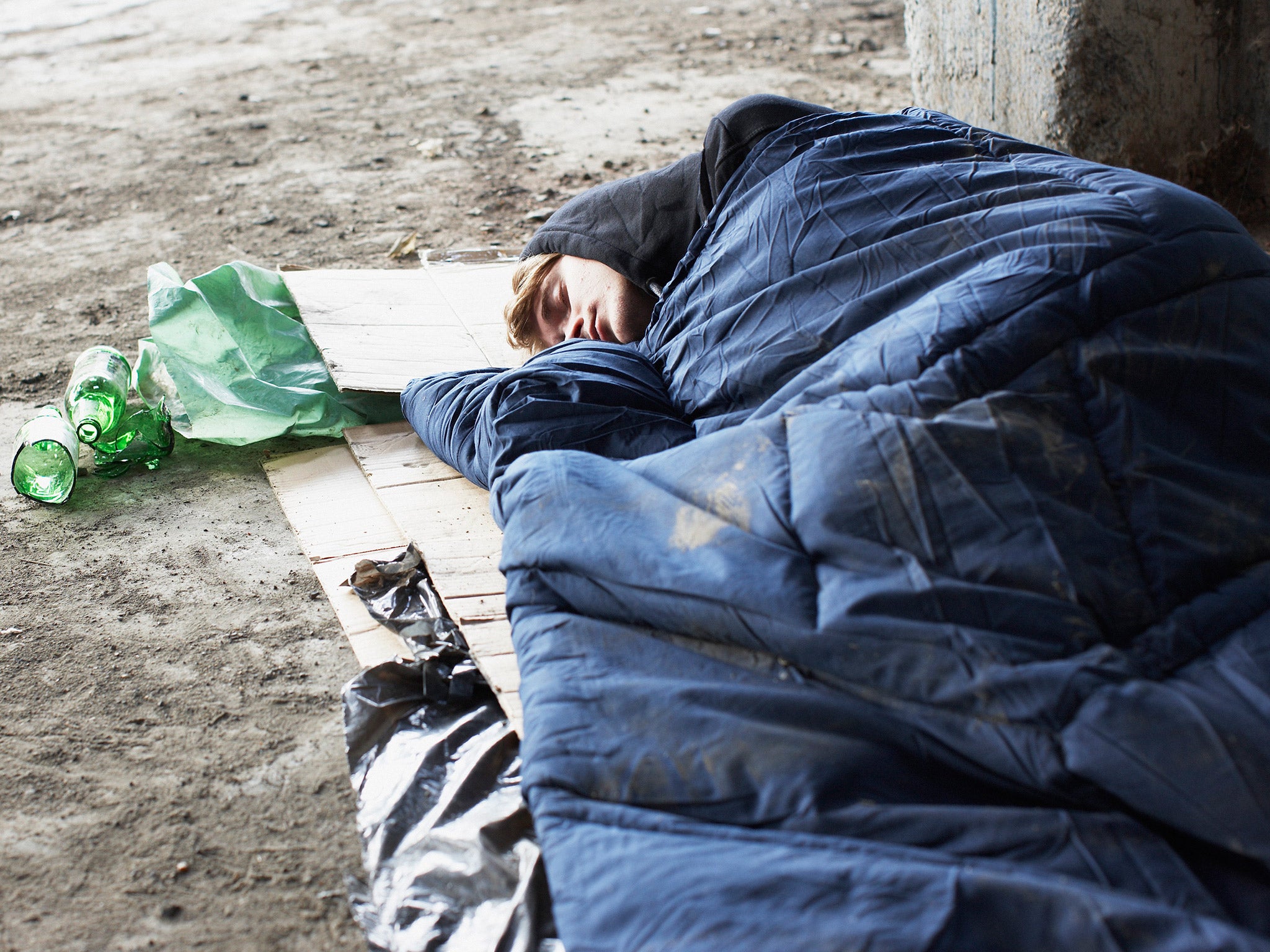Youth homelessness is already high enough, and what are politicians proposing? Taking even more away from those in need
Removing the housing safety net for 18-21 year olds would be a disaster

Young people today face a great deal of uncertainty. Youth unemployment is double the overall rate of 6 per cent, and the number of young people not in education, employment or training remains worryingly high.
Even for those in work, things are precarious. Younger people are more likely to be in low wage and insecure employment and although median incomes have recovered to their pre-crash levels, living standards have not recovered for young adults, whose incomes fell the most during the recession.
With the general election taking place in just over two weeks, you'd think that one of the main parties might be concerned about setting this right. It's easy to forget that every generation, young people quickly go from students, apprentices and low-paid workers, to the very centre of our economy. But to do this they need stability and security, which in its most basic form is a home, and the ability to live independently.
This may sound obvious. But for our politicians, it doesn't seem to be at all. The manifestos of both major political parties propose an alarming shift in housing options for young people, and one that not only threatens their welfare, but our economy as well.
The Conservatives propose that 18-21 year old job seekers should not be allowed to claim housing benefit. Meanwhile, Labour would scrap all out-of-work benefits for unqualified young people, replacing them with a means-tested Youth Allowance – which could remove housing benefit entitlement from those not able to live at home. The general thrust is that the state shouldn’t support unemployed young people to live independently.
Both of these approaches are hugely problematic, and seem to assume that all unemployed young people can fall back on their families for assistance with housing. The reality couldn't be more different. In a worrying echo of the 1980s, high levels of youth unemployment have already begun to coincide with sharp increases in youth homelessness. In just four years, the number of young people sleeping rough in London has more than doubled.
Will these party initiatives end youth homelessness and ensure that all young people are able to stay in education or get a job? Specialists working with homeless young people don’t think so. A recent Homeless Link report shows that nearly 50 per cent of people in single homeless accommodation are aged 16 to 24, and four in ten accommodation projects for the homeless and vulnerable exclusively house young people. And what many people don’t realise – including, it seems, our leading politicians – is that such projects are funded through housing benefit. For young people who have grown up in care, have no family left, or who cannot return home for fear of violence or abuse, housing benefit is a lifeline that keeps them off the streets. It gives people breathing space to plan their lives; to deal with trauma, continue with education or get a job.
Housing benefit also pays for emergency accommodation, such as night shelters, hostels and domestic violence refuges. If young job seekers were barred from housing benefit, they would have no access to this support should they need it.
Nineteen-year-old Emmanuella, fled to a Centrepoint hostel after enduring years of violent abuse at home. She stayed for seven months. In her words, “the thing about Centrepoint is they don’t just give you a bed, they help you for your future too”. However, the chance of this future would be lost if housing benefit were cut for people like Emmanuella. And it would leave others in her situation vulnerable to risky housing options, or street homelessness.
These cuts come under initiatives to get young people earning, but they overlook the homelessness risks. The fact is that 85 per cent of young people on Jobseeker’s Allowance find a job within twelve months. Withholding housing support during this time could easily turn a short period of job hunting into long-term unemployment. This doesn't only drag down a young person’s wellbeing, but our entire economy as well.
You can only hope that such plans are put on the usual pile marked “broken promises” should they get elected. In this instance, there's still a chance that they'll realise just how disastrous the impact of removing young people’s housing safety net will be. No one wants to see a return to the visible youth rough sleeping of the 1980s. So surely it’s better to just give young people the support they need to get our economy moving again?
Join our commenting forum
Join thought-provoking conversations, follow other Independent readers and see their replies
Comments
Bookmark popover
Removed from bookmarks